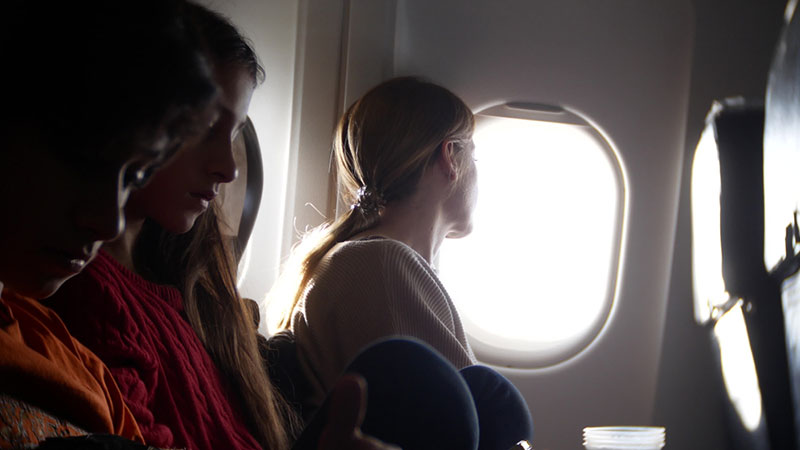Medical tourism, also known as international surgery or surgery abroad, involves seeking medical treatment in a geographical location not native to the patient – in other words, intentionally traveling outside of the patient’s home country to seek medical treatment or healthcare in another country.
The concept of medical tourism was born somewhere in 4000BCE among the Sumer people who promoted the use of mineral water springs, flowing wells and pools along with visits to temples as a way to improve one’s health and seek medical advice. However, it was the Ancient Greeks who took the idea of medical tourism and created a foundation for it in a large peninsula called Peloponnese in Southern Greece. The peninsula was home to a small terrain called Epidauria, a haven of Asclepius, God of Medicine according to Greek mythology; and as he represented and symbolized the therapeutic aspects of the Medical Arts, temples in this area were named Asclepieion after him.

According to history, travelers from all over the world would visit the Asclepieion temples in Greece in order to seek medical advice or to booth their health and well-being; and soon it because the hub for health and medical tourism in this ancient time. As medical tourism continued to progress, change and evolve, one basic feature that still remains to this day are the use of mineral-rich water or “spa” as it is now known.
People might be surprised to discover that the word “spa” is actually an abbreviation for the Latin phrase, Salus per Aquam, which translates to ‘health by water’. Countries such as the UK and Czech republic have made names for themselves by promoting their natural hot springs and mineral-rich waters, which have drawn in crowds of medical travelers seeking to boost their health. Spa towns like Bath in the United Kingdom for example, were a popular medical tourist destination in the eighteenth century where people came to improve their health and treat any diseases or illnesses they may have.

Nowadays, medical tourism has become a prosperous and thriving industry thanks to the ever expanding and economical travel options coupled with advancements and discoveries made in the field of medicine. Medical tourists now have the opportunity to seek medical treatment in various countries around the world that suit their budget, medical needs and travel desires.
According to research and statistics, some of the more popular medical specializations sought out by medical tourists today include cosmetic surgery, dentistry and dental surgery, assistive reproductive technologies (ART) such as IVF, and weight loss treatments like gastric bypass and gastric balloon.
One benefit of seeking medical treatment abroad is that the cost can be a much lower investment in another country. For example, a large number of medical tourists originate from America because surgery is costly in the United States, and the price can increase dramatically if the medical tourist is not covered by medical insurance. Statistics imply that the cost of certain medical procedures can be up to 90% less than the price in the United States, resulting in patients seeking medical treatment overseas to save up on costs.
A second benefit of medical tourism comes in the form of luxury medical care. Medical tourists are lured in by the high quality facilities and medical care that foreign hospitals and clinics may offer – incentives such as a hospital room that is fashioned to look and feel more like a hotel suite, one-on-one private nursing care, and spa-like postoperative care are only some of the additional benefits that reel in patients from all corners of the globe.
A third benefit of medical tourism is that traveling to a foreign country to seek medical treatment also doubles as a vacation. Medical tourists may use this opportunity to invest in a location that will attend to their medical needs while also fulfilling a potentially life-long travel desire. Some insurance companies will even provide packages for their clients to travel overseas for the purpose of seeking medical treatment and this is seen as a worthwhile investment for many individuals.

On the other hand, there are drawbacks to medical tourism. First and foremost, the language barrier might prove the biggest hurdle – if a medical tourist decides to seek medical treatment in country that does not speak their native language, they may be hard pressed to make their needs known to the clinic, hospital or treatment center. Preparations would have to be made to ensure that there are no communication barriers or breakdowns between the patient and treatment center.
A second drawback may be the food – if the medical tourist is an individual with a sensitive stomach, possesses food allergies or special dietary requirements, then they will need to do research on their designated destination to ensure that any dietary restrictions or requirements they have can be met to ensure that they do not hinder or aggravate their convalescence.
A third drawback of medical tourism is the distance needed to travel between an individual’s home country and their medical destination. Surgeons and doctors generally advise against flying after having a medical procedure due to blood clots that may form post-surgery; so patients should plan and schedule their trip home accordingly.
In conclusion, medical tourism is an accessible and opportunistic option for individuals with prevailing medical conditions but currently live in a country or city where the cost of medical treatment far exceeds their budget. It is also a great alternative for patients who want to visit and convalesce in another country before and after receiving the medical treatment that they want or need. However, while the benefits may proving alluring, medical tourists also need to weigh in the potential drawbacks of traveling abroad for medical treatment to ensure that it is a worthwhile investment – they should take into consideration not only their medical needs but personal needs and requirements, and financial restrictions. They should research possible insurance companies, whether or not their chosen destination can accommodate any allergies or dietary requirements they may have, and they should make preparations to overcome any language barriers they may face.